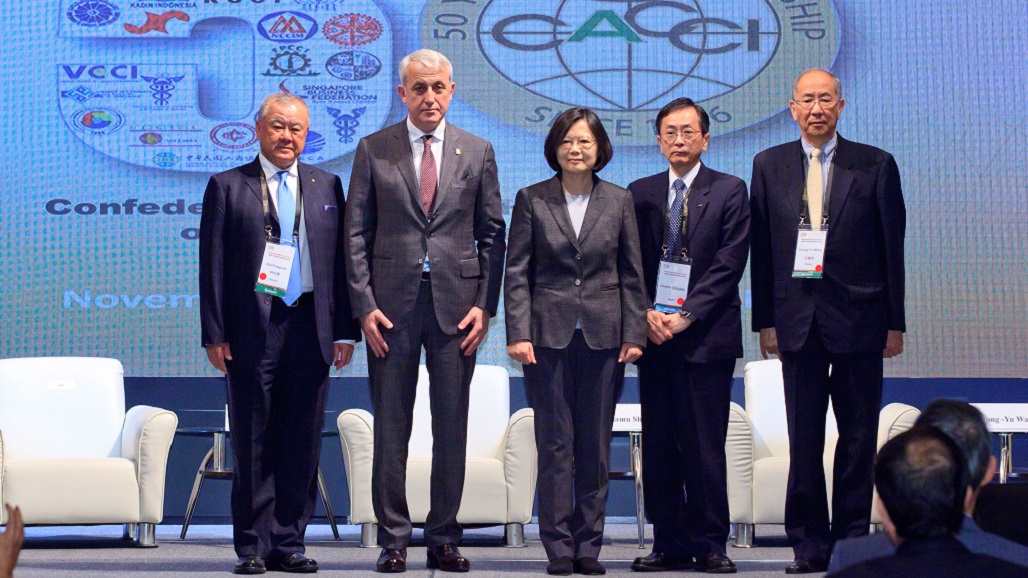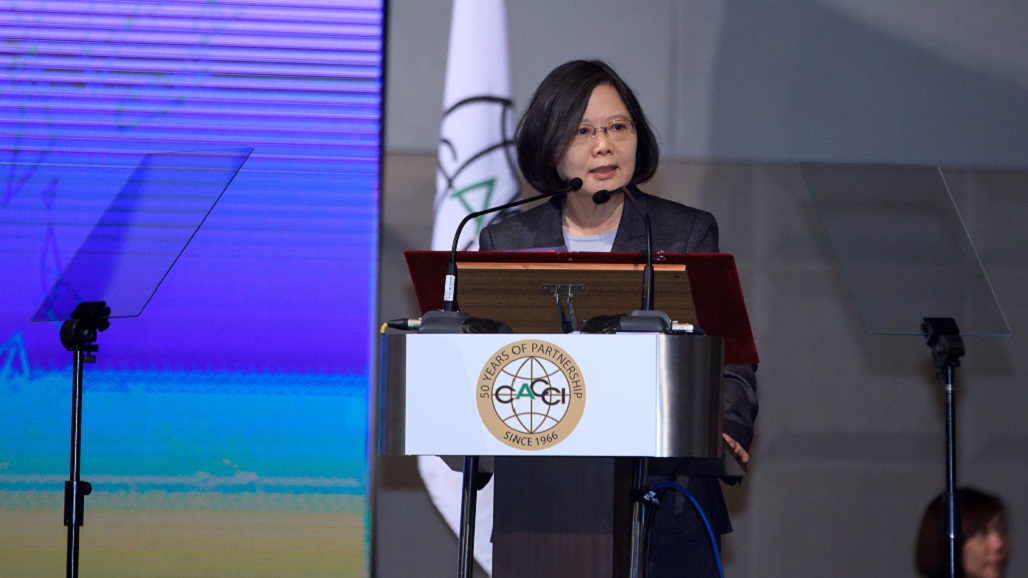
The Confederation of Asia-Pacific Chambers of Commerce and Industry (CACCI) successfully held its 30th CACCI Conference in Taipei, Taiwan on November 23-25, 2016, with the participation of some 450 delegates composed largely of businessmen and chamber of commerce representatives from 22 Asia-Pacific countries, led by CACCI President Jemal Inaishvili from the Georgia.
Co-hosted by the Chinese International Economic Cooperation Association (CIECA) and the Chinese National Association of Industry and Commerce (CNAIC), under the chairmanship of Chung-Yu Wang and Mr. Por-Fong Lin, respectively, with CTBC Bank as major sponsor, this year’s Conference also marked the 50th Anniversary of the Confederation. CACCI was established in 1966 to provide a platform for promoting the vital role of the businessmen in the region, increasing regional business interaction, and enhancing regional economic growth. Since it its organizational meeting in Taipei half a century ago, CACCI has been holding annual gatherings and Conferences to enable its members to exchange views on current developments and issues of concern to the business sector.

This year’s annual gathering of CACCI members focused on the theme “The Rise of Asia: Taking a Bigger Role in the Global Economy.” It was designed to provide CACCI members and invited experts the venue to exchange views on measures that the business sector and governments in the region can undertake to take full advantage of the opportunities offered not just by markets in the Asia-Pacific region but also by countries in other parts of the world.
The Opening Ceremony featured H. E. Tsai Ing-Wen, President of the Republic of China (Taiwan) as Special Guest of Honor. In her Address to the delegates, President Tsai underscored the relevance of the Conference theme, noting that Asia has certainly become the most important force driving the global economy. She said that by one projection, Asia’s share in the global economy in 2030 will either equal or surpass those of North America and Europe combined. She explained that the key to this impressive performance is economic liberalization and integration, which have in turn led to increased trade, investment and economic growth. President Tsai informed the delegates that, within this framework, Taiwan has always played an indispensable role in Asia’s development and supported further economic integration in the region. She added that her administration intends to do more, particularly through its New Southbound Policy, and will work hard to build stronger links with countries in ASEAN and South Asia, as well as Australia and New Zealand, especially in the areas of economics, trade, talent exchange, education, tourism and culture.
In his Opening Statement, CACCI President Mr. Jemal Inaishvili from Georgia said that over the past five decades of CACCI’s existence, a new economic reality has emerged in Asia. Many of the region’s economies grew significantly over the period, enabling Asia to rise as a dominant force in the global economy. As a result, he said, the region has grown bigger and richer, adding that today, it accounts for about 40 percent of the world’s GDP – up from 25 percent in 1990 – and contributes about two-thirds of global economic growth. He pointed out that Asia has made unprecedented strides in reducing poverty and improving broad development indicators. Indeed, many analysts believe that the centre of gravity of the global economy is shifting towards Asia and that this trend is most likely to continue in the decades to come, with the region’s economies expected to continue to grow at an average annual rate of 5 percent, leading global economic expansion.





